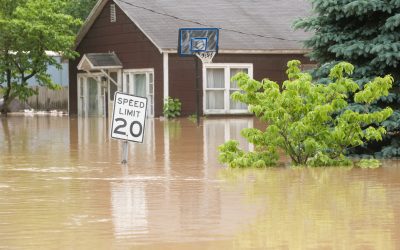How to Negotiate With Insurance Adjuster Like a Pro
Dealing with property damage in Florida can be overwhelming. Between repairs, safety concerns, and financial stress, the last thing homeowners want is to feel shortchanged by their insurance company. Learning how to negotiate with an insurance adjuster is essential to securing a fair settlement, and doing it like a pro can make a significant difference.
This comprehensive guide walks Florida homeowners through every step of the negotiation process, from first contact to closing a successful claim, with expert tips and links to trusted resources for additional support.
First Contact: Setting the Tone While Negotiating With an Insurance Adjuster
The negotiation process starts the moment you report your claim. Insurance adjusters are trained professionals hired to protect the interests of the insurance company. However, with the right approach, you can maintain control of the conversation and protect your own interests.

Here’s how to set the right tone:
- Document everything: Start a file with photos, repair estimates, receipts, and inspection reports. This documentation forms the backbone of your claim.
- Be professional and assertive: Stay polite, but be firm about what you need. Avoid emotional appeals — stick to the facts.
- Don’t rush the process: Insurance adjusters may attempt to pressure you into a quick settlement. Politely decline until you’ve had time to assess the true scope of the damage.
📌 Pro Tip: Early communication is critical. If you feel unsure, reaching out to insurance claim experts or a public insurance adjuster in South Florida can help level the playing field.
Key Negotiation Strategies That Work
Once the groundwork is laid, it’s time to build your case. Use these negotiation tactics to support your claim and get a better settlement:
1. Know Your Policy Inside and Out
Understanding your coverage is essential. Review your declarations page, limits, deductibles, and any exclusions before negotiating. Don’t rely solely on the adjuster’s interpretation.
2. Get Multiple Estimates
Don’t settle for the insurer’s repair estimate. Get quotes from independent contractors or roofers — especially if you’ve faced hurricane or flood damage, which is common in Florida.
3. Provide Clear Evidence
Submit a detailed list of damages with supporting evidence. Include timestamps, serial numbers, and professional assessments when possible. This increases your credibility and strengthens your position.
4. Use Comparative Claims
If similar claims in your neighborhood resulted in higher settlements, don’t hesitate to point that out. This tactic often applies during storm season when damage is widespread.
5. Leverage Expert Support
Hiring a public adjuster gives you an experienced negotiator on your side. A licensed professional can handle documentation, estimate preparation, and represent you in communications. Discover the benefits of hiring a public adjuster in Florida’s complex insurance environment.
Common Mistakes to Avoid During Negotiation
Many homeowners unknowingly weaken their claims by making avoidable mistakes. Here are common pitfalls to steer clear of:
- Accepting the first offer: Insurers often offer low initial settlements. Always review the proposal in detail before agreeing.
- Failing to challenge discrepancies: If the insurer omits or undervalues damages, address the error with supporting documentation.
- Not keeping a paper trail: Always document phone calls, emails, and in-person meetings. If issues arise later, your records could be vital.
- Waiting too long to act: Timing matters. Waiting too long can reduce your claim’s legitimacy or even void it. Here’s when it’s too late to hire a public adjuster.
Note: You’re entitled to question the adjuster’s assessment. It’s your property — protect your investment.
Frequently Asked Questions (FAQ)
Can I reopen a claim if I accepted a low offer?
Yes, in many cases, Florida law allows policyholders to reopen claims if new damages are discovered or if you believe the original settlement was unfair. However, there’s a time limit — usually within 2 years of the initial payment — so act quickly.
How long does the negotiation process usually take?
It varies. Straightforward claims may resolve in weeks, while complex ones — like those involving flood, mold, or roof damage — can take several months. Hiring insurance claim experts can help speed up the process by handling all back-and-forth communication efficiently.
What if the adjuster refuses to negotiate?
If the adjuster is uncooperative or dismissive, consider escalating the issue by contacting their supervisor. Alternatively, enlisting a public insurance adjuster ensures someone with authority and expertise negotiates on your behalf.
Final Thoughts
Learning how to negotiate with an insurance adjuster puts you in control of your claim — not at the mercy of the insurance company. From the first conversation to the final settlement, being informed and prepared makes all the difference.
If you’re feeling overwhelmed or stuck with a low settlement offer, it’s never too late to bring in professional help. Whether you’re in Orlando or South Florida, a public adjuster can maximize your payout and minimize your stress.
Need a Public Adjuster in Orlando?
Let our team of experts help you recover what you truly deserve.
For more information on your policyholder rights in Florida, visit the Florida Department of Financial Services.



